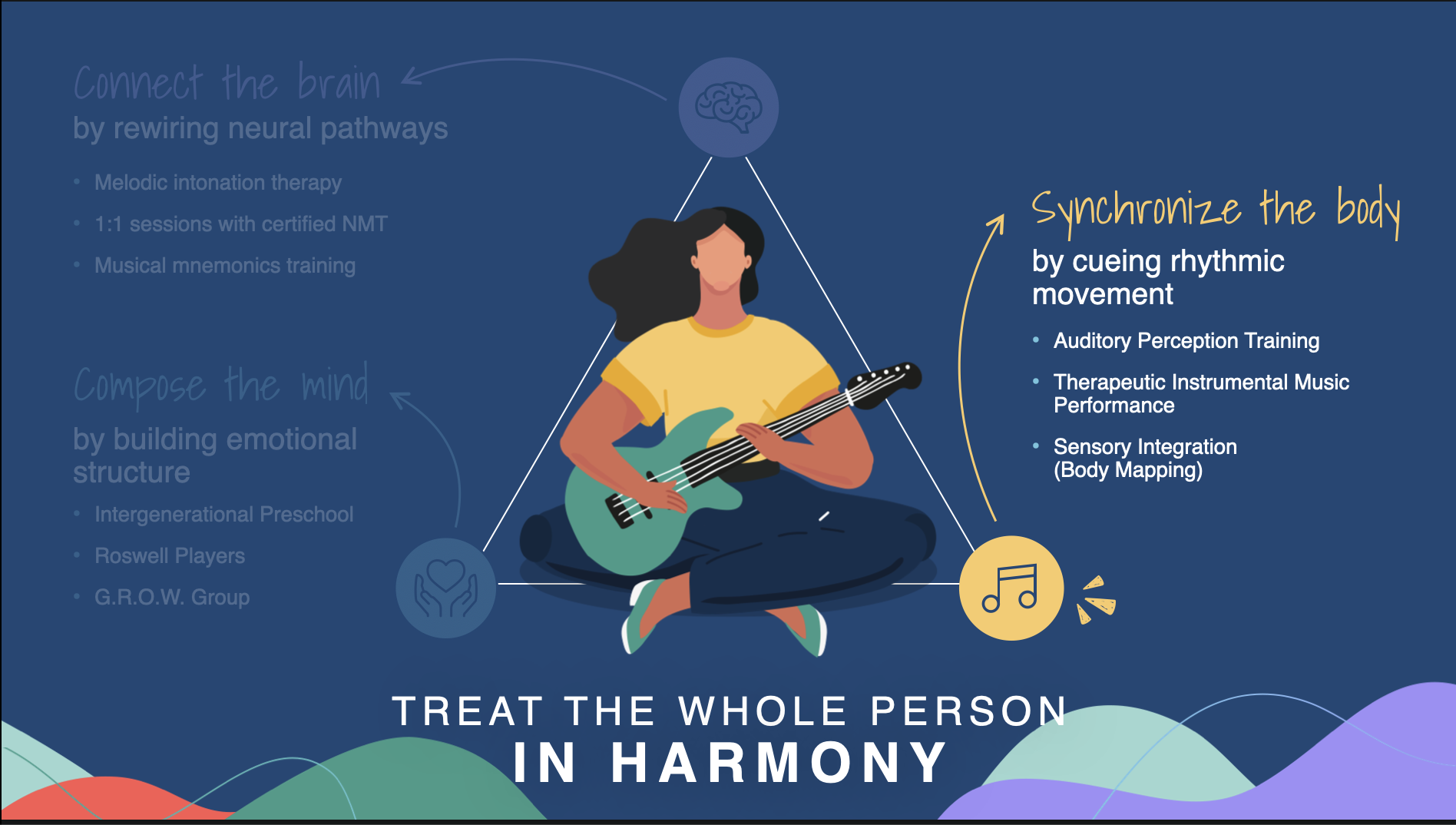Synchronize the body.
Your sense of self-worth is tied to your ability to do everyday tasks independently. But many kids with neurologic diagnoses struggle to learn skills like walking and typing. Many adults are actively fighting a decline. Imagine how demoralizing it can be to practice walking when you used to run marathons. Or when people assume your physical limitations mean you have low intelligence. Kids can get stuck in this trap because many cognitive assessments have a motor component. What if you have to raise your hand to show you understand, but you can’t get your body there in time? Motor challenges like these often start in the brain. Problems with your proprioceptive system or vestibular system can interfere with your body awareness. You might end up using too much force, or leaning on walls for balance, or shuffling your feet. That’s why physical therapy and occupational therapy aren’t always enough. They’re focused on muscle memory and strength, but they don’t address the root cause in the brain.
What if you could synchronize the body by cueing rhythmic movement?
With Perfect Harmony Health, you can use Neurologic Music Therapy (NMT)® techniques to help people manage their daily tasks.
With Neurologic Music Therapy (NMT)®, you can:
Use rhythm to time, structure, and cue movement, improving motor functioning
Use rhythm to regulate the sensory system
Improve motor planning, gross and fine motor skills through instrumental exercises


